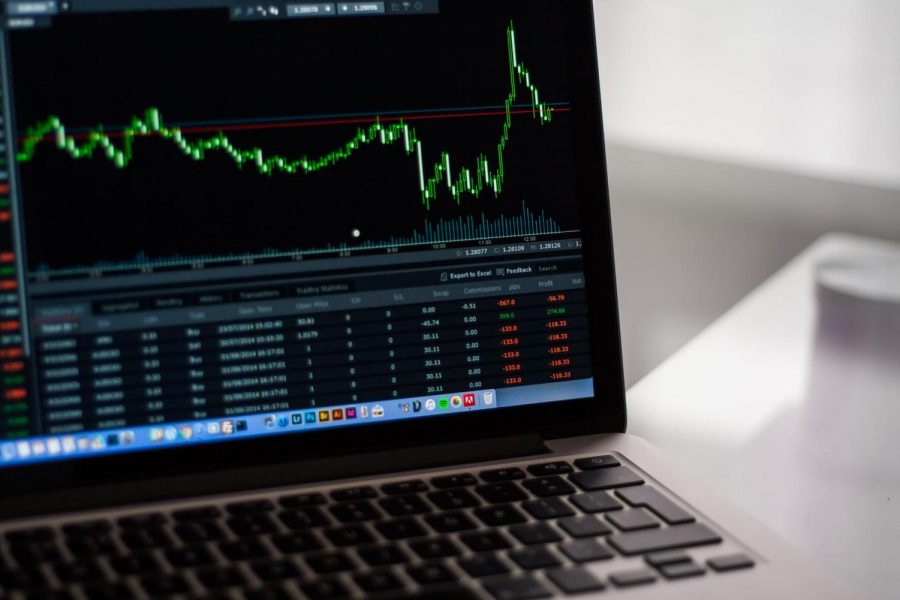NYU Students Don’t Panic During Stock Plunge
A computer screen displaying a chart of the recent stock market drop.
February 16, 2018
After over a year of rising stock prices, the stock market took a plunge on Feb. 2, with the Dow Jones dropping 666 points over the course of one day in what USA Today identified as its sixth largest drop in its 133 years.
While a steep drop in the stock market sounds like cause for concern, the Dow Jones has since climbed back up to the position it was in at the start of 2018.
However, Stern freshman Gaurav Sharma dismissed this raise as people “buying the dip” because stocks are cheaper now.
He believes that prices will soon take another dip. In fact, he’s counting on it.
Sharma, who has been trading stocks since 2010 as a fifth grader, predicted a collapse in stock prices in mid-January and invested accordingly.
“I put a lot of short positions on; my portfolio was very net short,” he said.
By attempting to short the market, Sharma is essentially betting that the stock market will drop in value.
Over the last two weeks, his portfolio — the combination of all his investments — went up by 15 percent.
“It’s treated me pretty well,” he said.
While Sharma predicted a crash at some point, he didn’t think it would happen so soon. Similarly, while Stern freshman Paul Chang knew a crash was coming at some point, predicting when it was coming is another issue entirely.
“If I knew it was coming, I would have shorted every single stock,” Cheng said. “I would have put my life savings towards shorting every single stock. I could have retired right there and then. I think no one knew when it was coming.”
Most of Chang’s investments were, with a few exceptions, long-term investments. The recent crash hit them pretty hard. But while the stock market has been set back in terms of prices, The Dow Jones Industrial Average has grown over 20 percent in the past year.
“In the long term, have I suffered any deficits or most people in the market, have they suffered deficits? Not necessarily,” Chang said.
It’s not just individual traders that have investments in the stock market. According to an NYU Investment Office fact sheet, NYU’s Endowment Fund, managed by the Investment Office, “provides a permanent source of capital to support the University’s mission and programs.”
However, the Investment Office remains adamant that the endowment wasn’t hit significantly by the dip.
In an email, NYU spokesperson John Beckman stated that because the annual budget set aside for the Endowment is determined by the average value of the Endowment over 12 quarters — three years — the short term impacts of market changes are minimal.
“There are no planned changes to the distribution from the endowment,” Beckman said in an email.
Furthermore, the Investment Office’s Chief Investment Officer Kathleen Jacobs sees this as a passing event.
“In terms of numbers, the market has rebounded and is essentially at the same level at which it began the year,” Jacobs said in an email.
For Sharma, however, the market correction is a welcome fix.
“What was happening before was sort of insanity,” Sharma said. “I think people lost the concept of the fact that stocks can go down as well. So my takeaway is that it’s just a very healthy market correction.”
Email Paul Kim at [email protected].



























































































































































